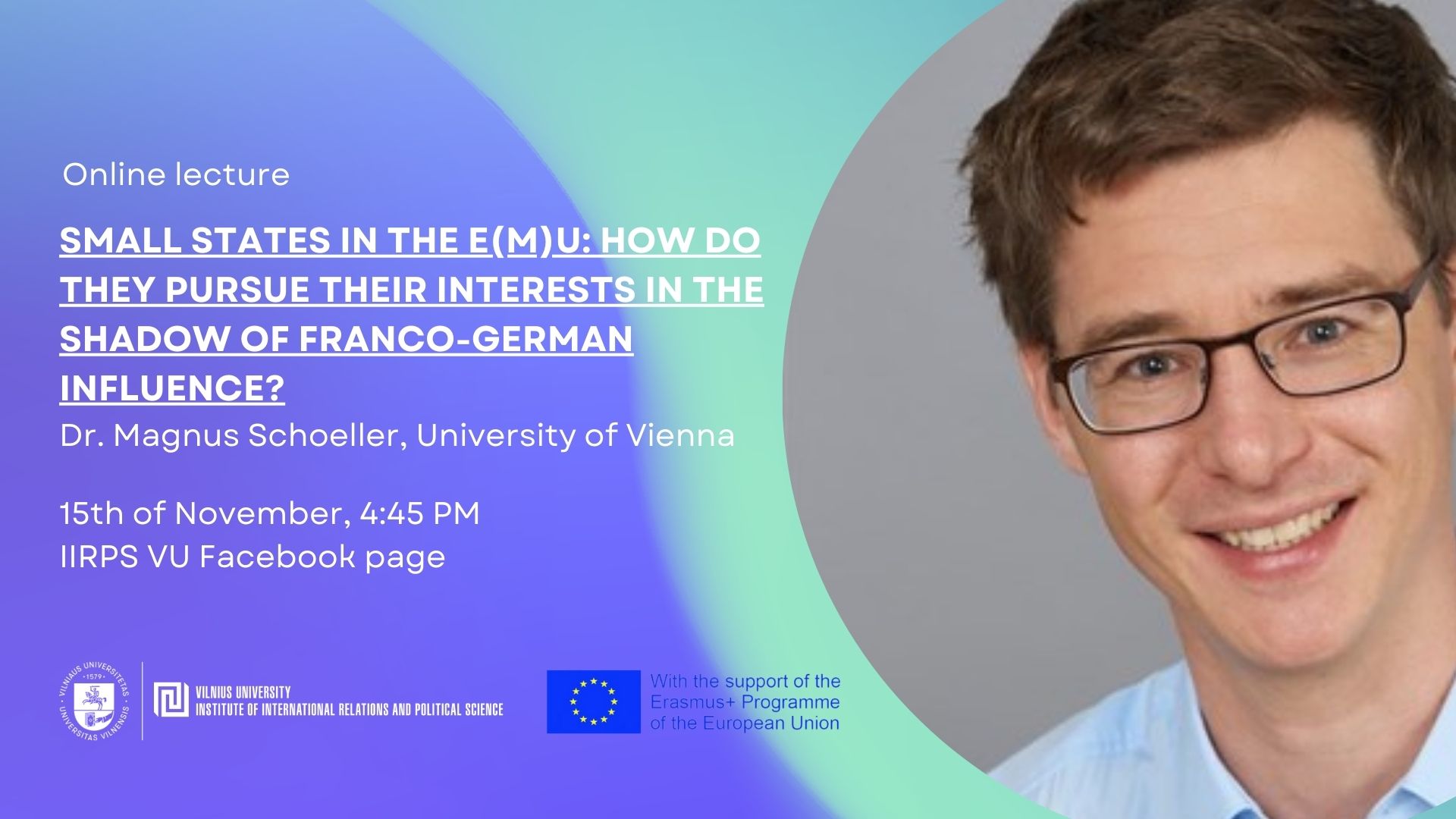On the 15th of November we are inviting you to the online lecture “Small states in the E(M)U: How do they pursue their interests in the shadow of Franco-German influence?” which will be given by Dr. Magnus Schoeller.
The talk will focus on the role of small states in the EU in general and in the eurozone in particular by looking into the different roles they play in the decision-making process. More specifically, the talk will examine the strategies that small states can use to pursue their interests via-à-vis Germany or the Franco-German tandem. On the basis of his research, including a project on small states in the eurozone, Dr. Magnus Schoeller will discuss the conditions under which small states can upload their preferences to EU policymaking rather than being only decision-takers, the role they play, and what makes their efforts to advance their interests more effective. He will refer to debates on EMU reform and economic governance, as well as to other instances of collective EU decision-making in addressing recent crises, especially with regard to (dis)agreement between Germany and France.
The discussion will be moderated by Jean Monnet Chair Prof. Ramūnas Vilpišauskas.
The lecture will be livestreamed on the IIRPS VU Facebook page.
Dr. Magnus Schoeller is Principal Investigator at the University of Vienna and ‘APART-GSK’ Fellow of the Austrian Academy of Sciences. He holds a PhD from the European University Institute. His research integrates Policy Analysis with International Relations. In particular, he has specialized in the governance of the Economic and Monetary Union, Germany’s EU policy, small states in the EU, and leadership theory. This research appeared in leading journals, such as the Journal of European Public Policy or West European Politics. Books and edited volumes include Leadership in the Eurozone, European Parliament Ascendant, and Governing Finance in Europe.
The event is organised with the support of the Erasmus+ programme of the European Union.
The lecture is part of the IIRPS VU course „The Political Economy of European Integration“.









